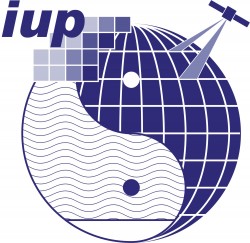- Back
- Location
- Anywhere
- Date Posted
- 16 Mar 2025

- Type
- PhD Project
- Anywhere
- 16 Mar 2025
PhD in atmospheric physics

NOTE: this position listing has expired and may no longer be relevant!
Position Description
Task is to “determine changes of top–of–atmosphere reflectance and cloud properties in the Arctic from 1995 to the present using satellite data.”
The position is framed within the overarching Collaborative Research Center TR172 „ArctiC Amplification: Climate Relevant Atmospheric and SurfaCe Processes, and Feedback Mechanisms (AC3)”, funded by the German Science Foundation (DFG) and starting January 1st, 2016. The project pursues an improved understanding of the processes leading to the recent warming of the Arctic high-latitudes, synergistically exploiting a variety of modeling and observational approaches. Therefore, close collaboration is planned with national partners (Universities of Leipzig and Cologne, Alfred Wegener Institute – AWI – for Polar and Sea Research in Bremerhaven and Center for Tropospheric Research – TROPOS – in Leipzig).
The scientific objective specific to the position is to determine the changes in Earth reflectivity over the Arctic (60°-90°N) from 1995 to the present, using a combination of observations from different spaceborne instruments that sense the electromagnetic spectrum from the UV (e.g., GOME, SCIAMACHY) throughout the thermal IR (e.g., (A)ATSR, AVHRR, IASI). Then, an assessment of changes in cloud properties will be undertaken, with particular care given to discrimination of clouds over snow- and ice-capped (hence, bright) surfaces. Upon necessary validation of the cloud properties retrieved from space with ground-based in-situ cloud data, long-term changes and trends will be assessed and compared with output of dedicated climate model runs.
Salary and benefits are commensurate with the federal German employee scale TV-L 13 (50%). The duration of the position will be three (3) years.
Prerequisites
– The successful candidate holds a Master-of-Science-equivalent degree in one of the following disciplines: physics, geophysics, meteorology, mathematics or computer science. Grade point average must be better than B (English grade) or 2.0 (German grade).
– He/she possesses experience in the Unix/Linux environment workflow, programming skills in at least one high-level language and
– strong interest in atmospheric science with focus on light scattering, radiative transfer, remote sensing methods and observations, climate.
– He/she brings along also a creative and independent mind set, together with excellent communication and presentation skills, both in written and spoken English.
The work will be performed in the IUP/IFE – department of Professor John P. Burrows which offers a good working atmosphere and modern equipment. Further information about the institute can be found here: www.iup.uni-bremen.de. The particular working group where the position is embedded in is the Cloud Aerosol Surface Parameter Retrieval group; further information can be found here: www.iup.uni-bremen.de/aerosol.


